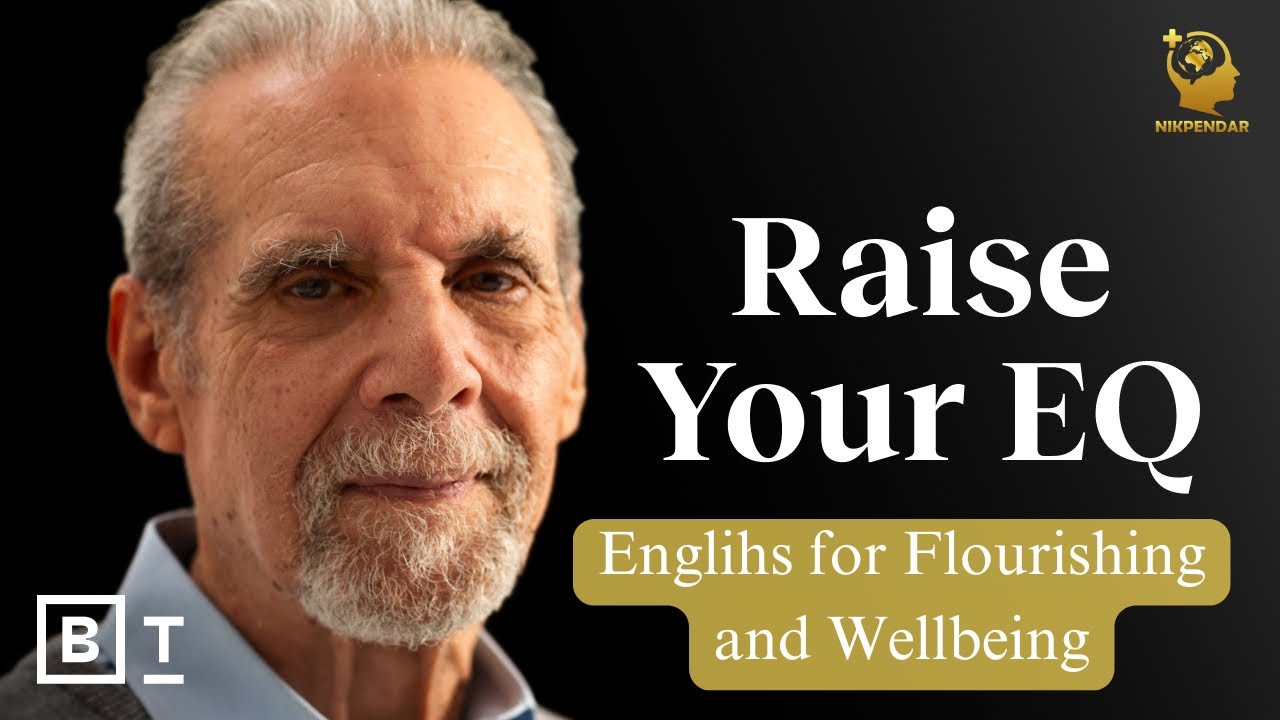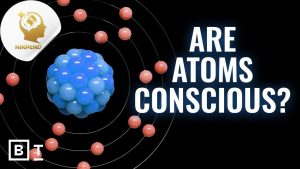
Beginner
Task 1: What is Emotional Intelligence?
Daniel Goleman talks about emotional intelligence. He says it’s about knowing your own feelings and understanding others. In your own words, what is emotional intelligence? Give one example of why it’s important.
- Prompt: “What is emotional intelligence? Why is it important for you?”
- Keywords to use: feelings, understanding, important, smart, happy.
Task 2: Good Leaders
The speaker talks about good leaders. What is one quality that makes a leader good, according to Daniel Goleman? Describe a good leader you know (teacher, parent, friend) and why they are good.
- Prompt: “What is one quality of a good leader? Tell me about a good leader you know and why they are good.”
- Keywords to use: good leader, quality, supported, positive.
Intermediate
Task 1: IQ vs. Emotional Intelligence
Daniel Goleman explains the difference between IQ (cognitive ability) and emotional intelligence. How does he describe what each one predicts? In what situations does emotional intelligence become more important than IQ?
- Prompt: “Explain the difference between IQ and emotional intelligence. When is emotional intelligence more important?”
- Concepts to include: IQ (school, salary, job entry), emotional intelligence (outstanding performers, leaders, soft skills, getting along).
Task 2: My Emotional Intelligence Skills
The speaker lists four parts of emotional intelligence: self-awareness, self-management, social awareness (empathy), and relationship management. Choose one of these parts and describe what it means to you. Give an example of how you either use this skill or how you could improve it in your own life.
- Prompt: “Choose one part of emotional intelligence (self-awareness, self-management, social awareness, or relationship management). Explain it and give an example of how you use it or want to improve it.”
- Concepts to include: chosen skill, definition, personal example of use or improvement.
Advanced
Task 1: Emotional Contagion in Leadership
Daniel Goleman discusses emotional contagion, particularly from leaders. Explain the concept of emotional contagion and how it impacts team or group performance, according to the research he cites. Provide a hypothetical or real-world example to illustrate this phenomenon and discuss the long-term implications of a leader with low emotional intelligence on an organization.
- Prompt: “Discuss the concept of ’emotional contagion’ in leadership, its impact on performance, and the long-term consequences of low emotional intelligence in leaders.”
- Key Concepts to address: emotional contagion, leader’s mood (positive/negative), team performance, short-term vs. long-term results, organizational health, talent retention.
Task 2: Purpose and Emotional Intelligence for a Better World
Goleman shares the story of Govan Brown, the bus driver, as an example of someone operating with high emotional intelligence and a strong sense of purpose. Analyze how Govan Brown’s actions exemplify various aspects of emotional intelligence (self-management, social awareness, relationship management). Furthermore, discuss Goleman’s broader vision for a “better world” with more emotional intelligence. What specific societal benefits does he envision, and how might these benefits contribute to global challenges (e.g., environment, compassion)?
- Prompt: “Analyze Govan Brown’s example in the context of emotional intelligence and purpose. Then, discuss Daniel Goleman’s vision for a ‘better world’ through increased emotional intelligence and its potential societal benefits.”
- Key Concepts to address: Govan Brown’s actions, purpose, deeper meaning, self-awareness, empathy, relationship management, compassion, environmental care, raising kinder kids, “evangelist for emotional intelligence.”
Beginner
Listening Tasks Based on “The Power of Emotional Intelligence” Transcript
Here are listening tasks for three proficiency levels, based on Daniel Goleman’s discussion about emotional intelligence.
Task 1: What is Emotional Intelligence?
Listen to the first part of the audio where Daniel Goleman introduces emotional intelligence.
- What does IQ help you with? (Choose one: a. Being happy all the time b. Getting a job c. Making friends)
- What does emotional intelligence help you with after you have a job? (Choose one: a. Being an outstanding performer b. Being smart c. Making a lot of money)
- Name two personal skills that are part of emotional intelligence.
Task 2: A Special Bus Driver
Listen to the story about the bus driver on Madison Avenue.
- How did the bus driver greet people?
- What did he talk about with the passengers? (Name two things)
- How did people feel after getting off his bus?
Intermediate
Task 1: IQ vs. Emotional Intelligence
Daniel Goleman compares IQ and emotional intelligence. Explain his main point about when each is most important. According to him, what kind of people emerge as “outstanding performers” and “best leaders”?
- Listen for: the comparison between IQ and emotional intelligence’s relevance at different career stages.
- Write about: when IQ is important, when emotional intelligence “kicks in,” and the characteristics of outstanding performers/leaders.
Task 2: The Four Domains of Emotional Intelligence
Goleman mentions four domains of emotional intelligence. Listen carefully and explain three of these domains in your own words. Give a brief example of what each domain involves.
- Listen for: “Self-awareness,” “Self-management,” “Social awareness,” and “Relationship management.”
- Write about: a definition/explanation for at least three of these, and an example for each.
Advanced
Task 1: Emotional Contagion and Leadership
Daniel Goleman discusses how emotions are contagious, especially from leaders. Analyze the research findings from the Yale School of Management mentioned by Goleman. Explain how a leader’s mood (positive or negative) can impact team performance. What are the long-term consequences for an organization if a leader has low emotional intelligence?
- Listen for: “emotions are contagious,” “leader’s mood,” “performance,” “long term.”
- Write about: the research findings, the impact of positive/negative leader moods, and the long-term organizational consequences of low emotional intelligence in leaders.
Task 2: The Transformative Power of Emotional Intelligence
Goleman shares the anecdote of Govan Brown, the bus driver, as an example of emotional intelligence in action. Discuss how Govan Brown’s approach transformed the experience of his passengers and why he was so successful. Connect his “purpose” to the broader societal benefits that Goleman believes increased emotional intelligence would bring.
-
- Listen for: “Govan Brown,” “transformed from grumpy to upbeat,” “purpose,” and “better world.”
- Write about: the bus driver’s actions, the effect on passengers, the concept of his “splendid sense of what he was doing,” and how Goleman sees emotional intelligence contributing to a “better world” and society.
Beginner
Task 1: What is Emotional Intelligence?
According to Daniel Goleman, what is emotional intelligence? Name two skills that are part of emotional intelligence. Why is it important? Write 3-4 sentences.
- Keywords to find: emotional intelligence, skills, important, self-awareness, empathy.
Task 2: Happy or Unhappy Leaders
The speaker talks about two kinds of leaders: ones you love and ones you hate. What is one quality that makes a leader good (loved)? What is one quality that makes a leader bad (hated)? Write 3-4 sentences.
- Keywords to find: leader, love, hate, quality, emotional intelligence.
Intermediate
Task 1: IQ vs. Emotional Intelligence
Daniel Goleman explains the difference between IQ and emotional intelligence. How does he say IQ helps people in their careers? At what point does emotional intelligence become more important than IQ for success? Explain with examples from the text.
- Word Count: 100-150 words
- Concepts to include: IQ, emotional intelligence, job, salary, outstanding performers, leaders.
Task 2: Changing Your Habits
The speaker discusses how to improve emotional intelligence by changing habits, like poor listening. Using the example of crossing your arms, explain why changing a habit can feel uncomfortable at first. What does Daniel Goleman suggest you do to get better at listening?
- Word Count: 120-180 words
- Concepts to include: habits, uncomfortable, neuroplasticity, listening, intentional effort, automatic.
Advanced
Task 1: The Four Domains and Their Interconnectedness
Daniel Goleman outlines four domains of emotional intelligence: self-awareness, self-management, social awareness (empathy), and relationship management. Choose two of these domains and explain their meaning in detail, using descriptions from the text. Discuss how these domains are interconnected and how a strength or weakness in one might affect the others.
- Word Count: 200-250 words
- Key Concepts to address: self-awareness, self-management, social awareness/empathy, relationship management, interconnectedness, strengths/limitations.
Task 2: Emotional Contagion and Leadership Impact
Explain the concept of emotional contagion as described by the research from the Yale School of Management. How does a leader’s mood (positive or negative) impact their team’s performance? Analyze the long-term consequences of a leader with low emotional intelligence on an organization, drawing specific details from the text.
- Word Count: 250-300 words
- Key Concepts to address: emotional contagion, leader’s mood, positive mood, negative mood, team performance, long-term consequences, draining organization, burning out, losing good people.
Beginner
Task 1: What is Emotional Intelligence?
Daniel Goleman talks about emotional intelligence. He says it’s about knowing yourself and getting along with others. Write 3-4 sentences explaining what emotional intelligence means in your own words.
- Keywords to use: emotional intelligence, feelings, others, good relationships
Task 2: My Favorite Leader
Think about a leader you like (it could be a parent, teacher, coach, or even a character from a book/movie). What makes this leader good? How do they make you feel? Write 4-5 sentences.
- Keywords to use: leader, good, supported, inspired, feel
Intermediate
Task 1: IQ vs. Emotional Intelligence
Daniel Goleman explains the difference between IQ (Intelligence Quotient) and Emotional Intelligence (EQ). According to him, what does IQ predict, and when does EQ become more important? Explain why EQ is crucial for outstanding performance, especially in professional settings.
- Word Count: 100-150 words
- Concepts to include: IQ, emotional intelligence, predict, job, outstanding performers, leaders.
Task 2: The Four Parts of Emotional Intelligence
Daniel Goleman identifies four key domains of emotional intelligence: self-awareness, self-management, social awareness (empathy), and relationship management. Choose two of these domains and explain them in your own words. Give a small example for each of how someone might demonstrate this skill in everyday life.
- Word Count: 120-180 words
- Concepts to include: self-awareness, self-management, social awareness, relationship management, empathy, examples.
Advanced
Task 1: Emotional Intelligence as a Learnable Skill: Neuroplasticity and Habit Change
Daniel Goleman emphasizes that emotional intelligence is “learned and learnable” at any point in life, contrasting it with IQ. He connects this ability to neuroplasticity and habit change, using the analogy of crossing your arms differently. Discuss how Goleman explains the process of improving emotional intelligence, specifically referencing the role of intentional effort and the brain’s ability to change. Provide a detailed example of how someone could apply this principle to improve a specific emotional intelligence competency (e.g., listening skills) in their life.
- Word Count: 200-250 words
- Key Concepts to address: emotional intelligence (learnable), neuroplasticity, habit change, intentional effort, discomfort, automatic habit, specific example (e.g., listening).
Task 2: The Contagion of Emotions and Leadership Impact
Goleman asserts that emotions are contagious, particularly from leaders. Analyze how a leader’s emotional state can significantly impact team or organizational performance, referencing the research from the Yale School of Management. Discuss the long-term consequences for an organization led by someone with low emotional intelligence versus high emotional intelligence. Reflect on the story of the bus driver, Govan Brown, as an example of emotional intelligence in leadership and its broader societal impact.
- Word Count: 250-300 words
- Key Concepts to address: emotions are contagious, leader’s mood (positive/negative), team performance, long-term consequences of low EQ in leadership, Govan Brown example (purpose, transformation, societal impact).





